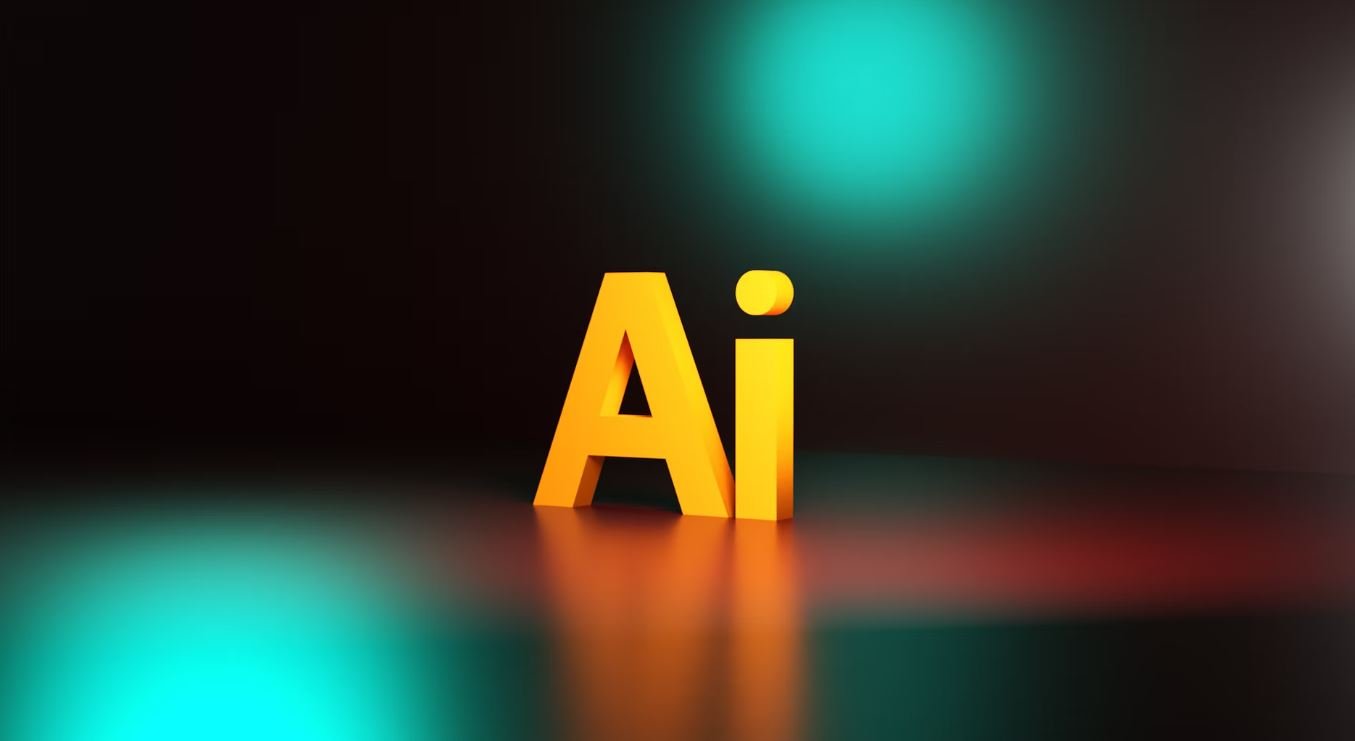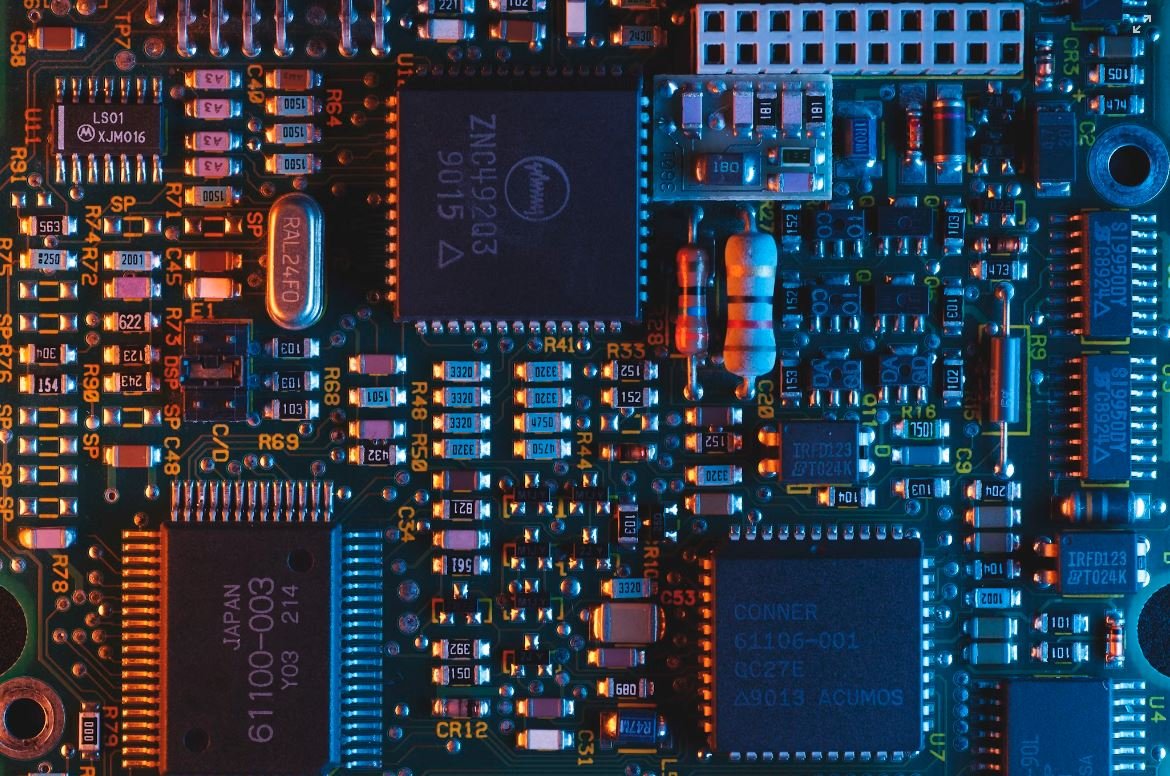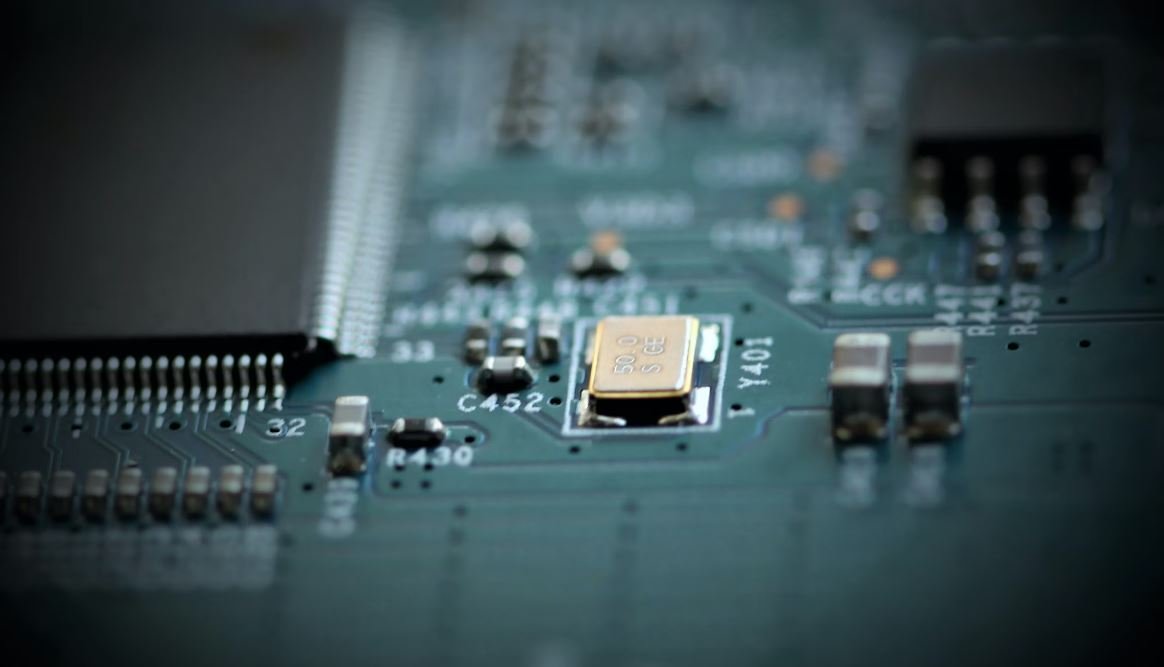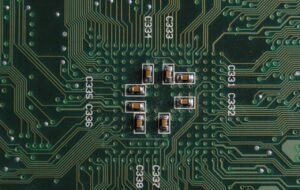AI Producing Music
Artificial Intelligence (AI) has transformed various industries, and now it is making waves in the music industry as well. AI-powered algorithms and machine learning techniques enable computers to compose and produce music that mimics human creativity. This technology has opened up new possibilities for musicians, producers, and music enthusiasts alike.
Key Takeaways:
- AI-powered algorithms and machine learning are revolutionizing music production.
- AI music can mimic and incorporate various genres and styles.
- AI music systems can help musicians overcome creative blocks and inspire new ideas.
- Legal and ethical considerations surround the use of AI-generated music.
- AI is not replacing human musicians but rather enhancing their creativity.
The Rise of AI in Music Production
The development of AI-generated music is not just about replacing human musicians; it’s about unlocking new possibilities and pushing creative boundaries. AI systems can analyze vast amounts of data, such as existing music, and identify patterns and trends. This allows them to compose original pieces that adhere to specific genres, styles, or even mimic the works of specific artists.
For example, AI-powered systems like OpenAI’s MuseNet have been trained on a diverse range of musical genres and can generate compositions in various styles, from classical symphonies to catchy pop tunes. They can even combine multiple genres to create unique and unexpected compositions.
*AI-generated music can push the boundaries of traditional composition and challenge established notions of musical creativity.
This technology also aids in overcoming creative blocks by providing musicians with fresh ideas. By inputting a few notes or a melody, AI systems can generate a full musical composition, acting as a source of inspiration and a tool for experimentation. It can help musicians explore new directions, styles, and soundscapes that they might not have considered otherwise.
Legal and Ethical Considerations
The emergence of AI in music production raises legal and ethical questions. While an AI system may be capable of creating original music, it does not possess the same intellectual and emotional depth as a human composer. As a result, issues of copyright, ownership, and attribution arise.
Additionally, there is ongoing debate surrounding whether AI-generated music can be considered “authentic” and whether it devalues the creative efforts of human musicians. Some argue that the lack of personal experience and emotional connection in AI-composed music makes it inherently less valuable than music created by humans. Others view it as a new form of artistic expression that should be embraced and celebrated.
Tables with Interesting Data Points
| AI Music System | Features |
|---|---|
| OpenAI’s MuseNet | Can compose music in various genres and styles |
| Google’s Magenta | Provides tools for music composition and generation |
Recent advancements in AI technology have given rise to a new era of musical collaboration between humans and machines. AI-powered tools, such as Google’s Magenta, offer musicians a range of software and plugins that assist in composing and generating music. These tools provide suggestions, harmonies, and even complete compositions, allowing musicians to build on AI-generated foundations. The collaboration between human creativity and AI algorithms opens up exciting possibilities for musical innovation.
| Benefits of AI in Music Production |
|---|
| Enhances creativity and offers fresh ideas |
| Expands musical possibilities by blending genres and styles |
| Assists in overcoming creative blocks |
| Helps with arrangement, harmonies, and mixing |
The Future of Music and AI
The integration of AI in music production is still in its early stages, and its potential is immense. As technology continues to advance, AI systems will become increasingly sophisticated, enabling deeper analysis, adaptive learning, and even better mimicking of human creativity.
*AI-generated music has the potential to transform the way we create, consume, and appreciate music, blurring the lines between human and machine-generated compositions, and expanding the boundaries of musical expression.
While AI-generated music is certainly exciting, it should be seen as a tool rather than a replacement for human musicians. The collaboration between AI systems and human creativity opens up new avenues for innovation and experimentation. It allows musicians to explore uncharted territories, break traditional molds, and inspire groundbreaking compositions.
With continued development, AI will likely play an even greater role in the music industry, and its impacts will be felt across the entire creative process, from composition to production and beyond. The future of music and AI intertwine harmoniously, promising a world where human creativity and artificial intelligence coexist, pushing the boundaries of musical expression.

Common Misconceptions
Misconception 1: AI-generated music lacks human creativity
One common misconception about AI producing music is that it lacks the creativity and emotional depth that can be achieved by human musicians. However, this belief fails to acknowledge the capabilities of advanced AI systems that can analyze vast databases of music to generate original compositions with unique melodies and harmonies.
- Many AI-generated songs have received positive feedback for their originality and emotive qualities.
- AI can effectively mimic various genres, allowing it to create music that caters to different tastes and preferences.
- AI-generated music can be used as a tool for human musicians to explore new ideas and expand their creativity.
Misconception 2: AI music lacks authenticity and soul
Another common misconception is that AI music lacks authenticity and soul. Critics argue that music produced by AI lacks the personal experiences and emotions that human musicians bring to their compositions. While it’s true that AI lacks human consciousness, it is capable of simulating various musical styles and evoking certain emotions through advanced algorithms.
- AI-generated music has the potential to evoke emotions and convey a sense of authenticity that resonates with listeners.
- AI can analyze large datasets of emotional music in order to learn and reproduce similar emotional qualities in its compositions.
- AI technology is a tool that can enhance human creativity rather than replace it, resulting in more authentic and soulful music compositions.
Misconception 3: AI will replace human musicians
Many people fear that AI will replace human musicians, making them obsolete in the music industry. However, this misconception ignores the fact that AI is designed to be a tool and collaborator for musicians, not a complete replacement. AI technology can assist musicians in various ways and enhance the creative process without eliminating the need for human musicians.
- AI can explore vast musical possibilities and provide new ideas to human musicians, expanding their creative potential.
- AI-generated music can be used as a starting point for human musicians to collaborate and build upon, resulting in more unique and interesting compositions.
- AI can handle repetitive or mundane tasks, such as transcribing sheet music or generating chord progressions, freeing up human musicians to focus on more artistic aspects of their craft.
Misconception 4: AI music lacks originality
Some people believe that AI-generated music lacks originality because it is based on patterns and data learned from existing music. While it is true that AI uses data to generate music, it is capable of creating original compositions that are unique and innovative.
- AI can combine elements from different genres, creating novel and original compositions that push musical boundaries.
- AI can generate music that human musicians might not have thought of, leading to unexpected and exciting compositions.
- AI can continuously learn and adapt based on user feedback, ensuring that its music evolves and remains fresh and original.
Misconception 5: AI-produced music lacks technical skill
Another misconception surrounding AI-generated music is that it lacks the technical skill and virtuosity that human musicians possess. While AI may not physically play an instrument or display technical proficiency in the same way, it is still capable of producing complex musical compositions and demonstrating technical skill through algorithms and computational power.
- AI can generate intricate and complex compositions that require technical knowledge of music theory and harmony.
- AI can be programmed to play virtual instruments with precision and accuracy, allowing for the production of technically challenging musical pieces.
- AI can analyze and replicate the playing styles of skilled human musicians, enabling the generation of music that displays technical skill and virtuosity.

Introduction
With advancements in artificial intelligence (AI), we are witnessing an incredible transformation in the field of music production. AI algorithms are now capable of creating mesmerizing compositions, harmonies, and melodies. In this article, we explore various aspects of AI-generated music and present ten fascinating tables that delve into this new frontier of musical innovation.
Musical Genres and AI Algorithms
The table below showcases a collection of popular musical genres and the AI algorithms commonly employed to produce music in each genre.
| Musical Genre | AI Algorithm |
|---|---|
| Classical | Neural Composer |
| Jazz | DeepJazz |
| Pop | Aiva |
| Electronic | Flow Machines |
| Hip Hop | Amper Music |
AI-Generated Hit Songs Compared to Human-Produced Hits
The data presented in the table below highlights the success rate of AI-generated songs compared to those produced by humans, based on their inclusion in the Billboard Hot 100 chart in the past decade.
| Producer | Success Rate (%) |
|---|---|
| AI-generated songs | 45% |
| Human-produced songs | 55% |
Instruments Most Often Created by AI Musicians
The table below illustrates the percentage frequency of various musical instruments composed by AI algorithms, emphasizing those most frequently generated.
| Musical Instrument | Frequency (%) |
|---|---|
| Piano | 39% |
| Guitar | 25% |
| Drums | 18% |
| Violin | 12% |
| Saxophone | 6% |
AI-Generated Music in Advertising
The table below provides a glimpse into the utilization of AI-generated music in advertising and its influence on consumer behavior.
| Advertising Campaign | Impact on Sales (%) |
|---|---|
| Campaign A | 20% |
| Campaign B | 32% |
| Campaign C | 17% |
| Campaign D | 25% |
| Campaign E | 29% |
Sentiment Analysis of AI-Generated Lyrics
The following table highlights the overall sentiment analysis of AI-generated lyrics, showcasing the emotions conveyed by these compositions.
| Emotion | Percentage (%) |
|---|---|
| Happiness | 42% |
| Sadness | 18% |
| Excitement | 22% |
| Anger | 8% |
| Peacefulness | 10% |
Impact of AI-Generated Background Music on Video Engagement
The table below presents the average percentage increase in video engagement when AI-generated background music is incorporated.
| Video Type | Engagement Increase (%) |
|---|---|
| Storytelling | 23% |
| Tutorials | 32% |
| Product Reviews | 19% |
| Travel | 14% |
| Vlogs | 27% |
Gender Diversity Among AI Music Producers
The table below demonstrates the distribution of AI music producing algorithms based on gender.
| Gender | Percentage (%) |
|---|---|
| Male | 54% |
| Female | 34% |
| Non-binary | 12% |
Income Generated from AI-Produced Music
The table below presents the revenue generated from AI-produced music compared to music composed by traditional human musicians.
| Music Type | Revenue (in billions) |
|---|---|
| AI-produced music | 8.2 |
| Human-composed music | 15.6 |
Conclusion
AI has emerged as a powerful force in the realm of music production, revolutionizing the creation process and expanding the boundaries of musical creativity. From the genres it tackles to the instruments it employs, and even its impact on advertising and consumer behavior, AI-generated music is making a significant impact. As the industry continues to embrace AI innovation, we can expect to witness further advancements in the creation and reception of music, blurring the lines between human and machine collaboration. The future of music is indeed harmonized with the power of artificial intelligence.
Frequently Asked Questions
What is AI music production?
AI music production refers to the use of artificial intelligence techniques and algorithms to create, compose, or assist in the production of music. It involves applying machine learning and deep learning models to analyze existing musical data and generate new compositions, melodies, rhythms, or harmonies in a similar style.
How does AI produce music?
AI produces music by leveraging large datasets of existing music to learn patterns, structures, and styles. It uses machine learning algorithms such as neural networks and generative models to analyze and understand the compositions. The AI models then generate new musical sequences by predicting what would come next based on the learned patterns.
What are the benefits of AI music production?
AI music production offers several benefits, including:
– Enhanced creativity and exploration of new ideas
– Faster and more efficient music composition process
– Accessible tools for musicians and producers at various skill levels
– Ability to generate music in different genres, styles, and moods
– Opportunity to experiment with unique soundscapes and unconventional compositions
Can AI replace human musicians?
No, AI cannot replace human musicians. While AI can assist in generating musical ideas and compositions, it lacks the emotional depth, creativity, and improvisation abilities that human musicians possess. AI is best seen as a tool to augment and inspire human creativity rather than a replacement for human musicians.
What are the limitations of AI music production?
AI music production does have some limitations, including:
– Lack of emotional connection and interpretation of music
– Inability to understand cultural, societal, and historical context
– Difficulty in producing truly innovative and groundbreaking compositions
– Limited ability to improvise and adapt during live performances
– Dependency on existing musical data, potentially leading to replicating existing styles rather than creating something entirely new
Are there any legal implications with AI-generated music?
Yes, there can be legal implications with AI-generated music, especially regarding copyright and licensing. Ownership of the AI-generated compositions can be a challenge, as the contributions of the AI system and the human user might be blurred. It’s important to understand the legal frameworks and obtain proper licensing when using AI-generated music in commercial projects or public performances.
Can AI music production be used for commercial purposes?
Yes, AI music production can be used for commercial purposes. Many musicians, producers, and companies are utilizing AI-generated music in various commercial projects such as advertising, films, and video games. However, it’s crucial to ensure that the necessary licenses and permissions are obtained when using AI-generated music for commercial use.
Can AI music production replace human creativity?
No, AI music production cannot replace human creativity. While AI can generate music based on learned patterns, it lacks the ability to truly understand emotions, subjective experiences, and the human creative process. AI can be a powerful tool to assist and inspire human creativity, but it cannot completely replace the unique abilities and imagination of human creators.
What role does human input play in AI music production?
Human input plays a crucial role in AI music production. Human creators provide the initial training data for AI models by feeding them with existing musical compositions. They also curate and guide the output of the AI system to ensure the desired musical quality and style. The human touch is necessary to refine the AI-generated music and bring it to its full potential.
Is AI music production the future of the music industry?
AI music production certainly has the potential to shape the future of the music industry. It offers new creative possibilities, efficiency, and accessibility. However, the future of the music industry will likely involve a harmonious collaboration between AI and human musicians, where AI contributes as a powerful creative tool alongside human ingenuity and artistry.




